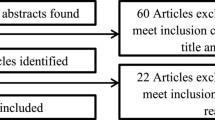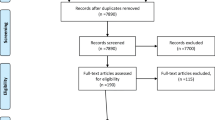Abstract
Self-management is an essential component of disease management that involves collaboration between patients and healthcare providers to ensure patient engagement in behaviors that help control or reduce the impact of their disease. The self-management model assists patients in gaining skills to manage their disease and, more importantly, in gaining the confidence to apply these skills on a day-to-day basis.
The key processes in self-management are goal selection, information collection and interpretation, decision making, action, and self-efficacy. Patients must be active in goal selection, and treatment goals must be agreed between the patient and the healthcare provider. Patients have to be able to collect information through self-monitoring, self-observation, and recording of data. Interpretation of this information is useful to both patients and healthcare providers as it enables refinement of self-management practices. Decision making is essential for effective self-management — patients need to be able to select what actions to take. Action refers to the performance of self-management skills — patients must not only learn the skill but also be competent and successful in it. This will enhance self-efficacy, which is essential if we want patients to be successful in performing and maintaining a specific behavior.
For self-management to be effective, skills that are mastered also have to be maintained over time. Feedback from healthcare professionals coupled with the patient’s own experiences in controlling chronic obstructive pulmonary disease (COPD) improves the patient’s subsequent performance of self-management activities and their self-efficacy with regard to those activities. Compared with traditional care plans, self-management promotes more active patient participation and focuses more on the acquisition and practice of new skills. It appears that patients experience better control of COPD when they learn, execute, and continue to perform self-management processes throughout the course of their disease.



Similar content being viewed by others
References
Effing T, Monninkhof E, van der Valk PD, et al. Self-management education for patients with chronic obstructive pulmonary disease. Cochrane Database Syst Rev 2007; (4): CD002990
Adams SG, Smith PK, Allan PF, et al. Systematic review of the chronic care model in chronic obstructive pulmonary disease prevention and management. Arch Intern Med 2007; 167(6): 551–61
National Health Service. The expert patient: a new approach to chronic disease management for the 21st century. London: Department of Health, 2001
Bourbeau J, Nault D, Dang-Tan T. Self-management and behaviour modification in COPD. Patient Educ Couns 2004; 52(3): 271–7
Lorig K. Chronic disease self-management: a model for tertiary prevention. Am Behav Sci 1996; 39(6): 676–83
Creer TL. Behavioral and cognitive processes in the self-management of asthma. J Asthma 2008; 45(2): 81–94
Skinner BF. Science and human behavior. New York: Macmillan, 1953
Bandura A. Self-efficacy: the exercise of control. New York: W.H. Freeman, 1997
Bandura A. Self-efficacy: toward a unifying theory of behavioral change. Psychol Rev 1977; 84(2): 191–215
Locke EA, Latham GP. Building a practically useful theory of goal setting and task motivation: a 35-year Odyssey. Am Psychol 2002; 57(9): 705–17
Latham GP, Mitchell TR, Dassett DL. Importance of participative goal setting and anticipated rewards on goal difficulty and job performance. J Appl Psychol 1978; 63(2): 163–71
Creer TL, Bender BG. Pediatric asthma. In: Roberts MC, editor. Handbook of pediatric psychology. New York: Guilford Publications, 1995: 219–40
Bandura A. Social learning theory. Englewood Cliffs (NJ): Prentice Hall, 1977
Bandura A. The assessment and predictive generality of self-percepts of efficacy. J Behav Ther Exp Psychiatry 1982; 13(3): 195–9
Caplin DL, Creer TL. A self-management program for adult asthma: III. Maintenance and relapse of skills. J Asthma 2001; 38(4): 343–56
Naik AD, Kallen MA, Walder A, et al. Improving hypertension control in diabetes mellitus: the effects of collaborative and proactive health communication. Circulation 2008; 117(11): 1361–8
Cappuccio FP, Kerry SM, Forbes L, et al. Blood pressure control by home monitoring: meta-analysis of randomised trials. BMJ 2004; 329(7458): 145–8
Heisler M, Vijan S, Anderson RM, et al. When do patients and their physicians agree on diabetes treatment goals and strategies, and what difference does it make? J Gen Intern Med 2003; 18(11): 893–902
Lucas DO, Zimmer LO, Paul JE, et al. Two-year results from the asthma self-management program: long-term impact on health care services, costs, functional status, and productivity. J Asthma 2001; 38(4): 321–30
Taitel M, Kotses H, Bernstein L, et al. A self-management program for adult asthma: part II. Cost-benefit analysis. J Allergy Clin Immunol 1995; 95 (3 Mar): 672–6
Quebec Asthma and COPD Network. Living well with COPD: a plan of action for life [online; password: copd]. Available from URL: http://www.livingwellwithcopd.com [Accessed 2008 Oct 20]
Acknowledgments
No sources of funding were used to assist in the preparation of this article. The author has no conflicts of interest that are directly relevant to the content of this article.
Author information
Authors and Affiliations
Corresponding author
Rights and permissions
About this article
Cite this article
Bourbeau, J. Clinical Decision Processes and Patient Engagement in Self-Management. Dis-Manage-Health-Outcomes 16, 327–333 (2008). https://doi.org/10.2165/0115677-200816050-00009
Published:
Issue Date:
DOI: https://doi.org/10.2165/0115677-200816050-00009




